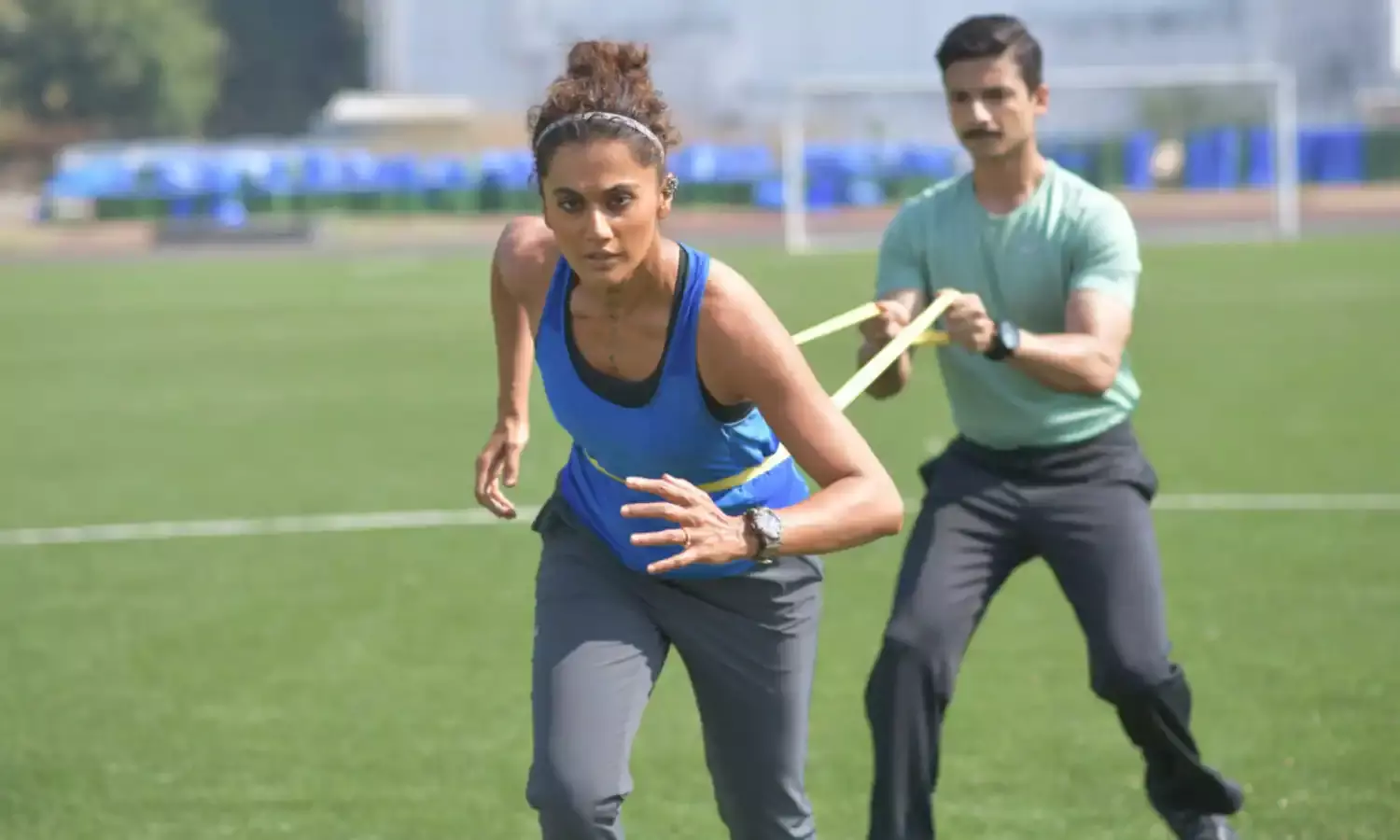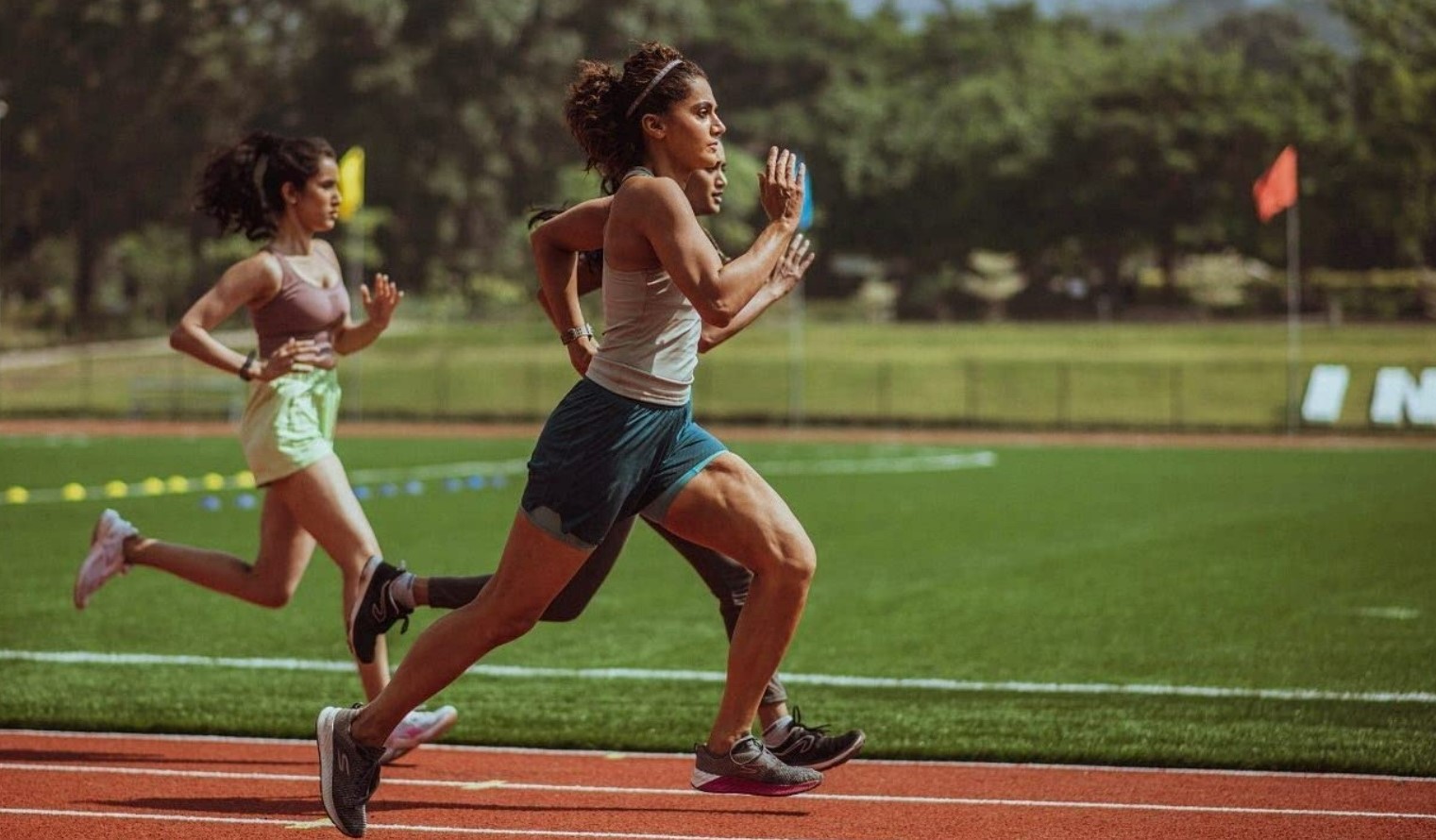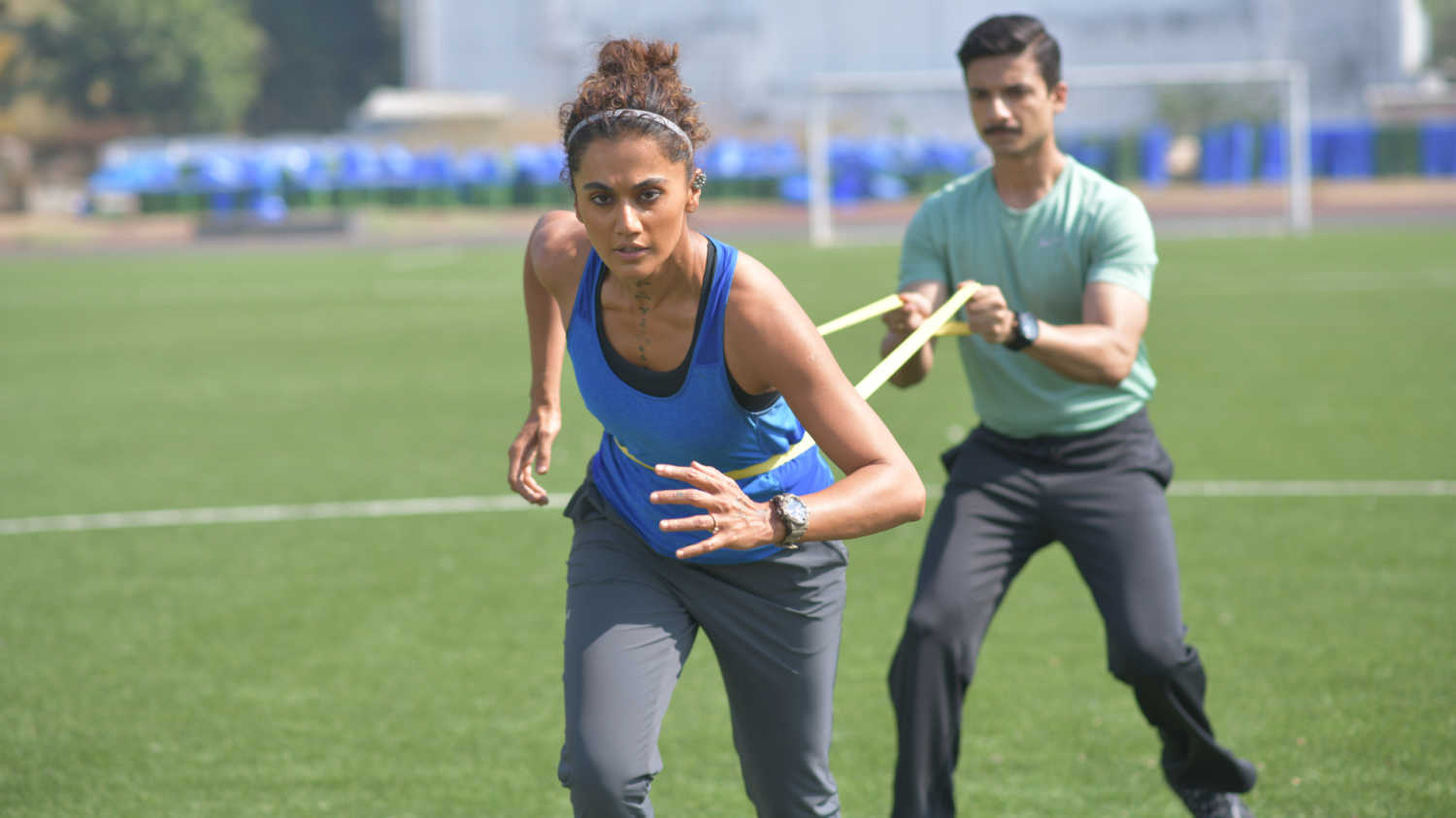Rashmi Rocket Rocks
Film review

Akarsh Khurana’s Rashmi Rocket released on Zee5 on October 10 is focussed on the purely politically manouevered and gender-biased elimination of winning sports women in athletics on the basis of very unscientifically structured sex tests.
“World Athletics has targeted women from the Global South for decades, treating those with high testosterone as less than human,” says Payoshni Mitra, scholar and athlete rights advocate. “These regulations demean women, make them feel inadequate, and coerce them into medical interventions for participation in sports. Modern sport should adapt itself to support inclusion and non-discrimination rather than perpetuate exclusion and discrimination.”
Dutee Chand shot into limelight between 2012 and 2014, when at just 18, she became India’s best bet for an Olympics medal. But hours before the Indian contingent was to leave for the Glasgow Commonwealth Games in 2014, she was dropped, because a complex maze of medical tests found high levels of testosterone in her body, referred to then as hyperandrogenism.
In an interview to a leading daily, Chand said, “I was not told by anyone, not even the doctor from SAI who conducted several tests on me, what they were for. I was confused. The papers were calling me a man. How does one turn into a man overnight?”
Rashmi Rocket is a mainstream film with a message that crosses global borders to establish the fact that in most cases, such sudden disqualification of women athletes from competitive sports is not only due to a gender bias but has strongly political motives at the administrative and executive levels of sports bodies who have their own axe to grind – political, filial, sociological and class-based, to favour a given athlete over the winning one.
The first three parts of the film build up to focus on the evolution of Rashmi from a small-town girl to the fastest running track athlete in the country while the last part turns the film into a courtroom drama.

Dutee Chand fought against the violation of her right to be informed about what test she was going through and why by challenging the rules at the Centre for Arbitration of Sport (CAS), an international tribunal in Lausanne, Switzerland.
In 2015, CAS suspended the rule for two years and asked the IAAF to commission studies proving a causal link between higher testosterone level and increased performance on track. In April 2021, based on a study funded by the IAAF and the World Anti-Doping Agency (WADA), the Federation clamped testosterone quotas, which now stand at five nanomoles per litre, for events from 400 metres to the mile.
Athletes who had hyperandrogenism had two options: Quit sports, or undergo a medical intervention involving surgery and long-term hormone-replacement therapy to lower androgen levels. Chand took the third option. She decided to challenge the ruling at the Court of Arbitration of Sports (CAS) in Lausanne, Switzerland, and with the help of an international team of experts, got a ruling in 2015 that lifted this ban.
Annet Negesa, a Ugandan runner, holds a photo of herself racing in the 2011 World Championships in Daegu, South Korea. Negesa was targeted under sex testing regulations and instructed to undergo a medically unnecessary surgery in 2012. Caster Semenya from South Africa – was disproportionately harmed.
Women track and field athletes, largely from the Global South, are abused and harmed by “sex testing” regulations, Human Rights Watch said in a report. The regulations target women in running events between 400 meters and one mile, and compel women they target to undergo medical interventions or be forced out of competition.
The impact of these harrowing experiences linger, echoed by countless women athletes across the world who struggle against arbitrary testing shrouded in secrecy. And this now seems to have become the trigger for a young filmmaker and his team to place on film that is fictional with stories from several real life stories.

Rashmi Virah is a Gujarati girl Rann of Kutch, who, from childhood, could run like a ‘rocket’ which became her second name in the small town she lived and grew up in, under the guidance of progressive parents but without any training whatsoever.
Her mother pushed her to take part in competitive sports though she did not like the idea much as she did not wish to leave the shelter of her mother. But she did and after regular and rigorous training, she began to win in athletics progressing from the State to the National levels and winning each time which, however, would prove to become her undoing.
The tests she is forced to go through are extremely humiliating as it involves stripping naked in front of someone who insists she is a medical expert in such tests which she is not, signing a consent form under tremendous pressure without reading the details in the form, and even being arrested and also slapped by male cops for “crashing into a women’s hostel and indulging in violence”.
Rashmi Rocket remains on the entertainment radar a bit too long before coming to the basic social agenda– sex tests as a human rights violation more than gender-centric violence Her romance with the army major Gagan Thakur (Priyanshu Painyuli) graduating to a live-in relationship and to marriage is understated, soft and delicately manoeuvred which throws up the ideal counterpoint to the sharply-edged main plot – Rashmi’s grilling training, her skills on the tracks and sudden outbursts of violence on the practicing fields.
The loss of her very affectionate and encouraging father (Manoj Joshi) in the Gujarat earthquake and her close bonding with her mother Bhanubehn (Supriya Pathak in a strong performance) offer a powerful backstory to her determination to breast the tape every time.
The husband brings her back to the practising tracks and out of depression after the shock of being disqualified for failing the testosterone levels tests and gives her solid backing, persuading her to go on also when he learns she is pregnant.
Rashmi refuses her pregnancy to be offered as a plea in her fight for reinstating her sex identity because she wants all wronged sportswomen to be brought within the purview of her judgement in case she wins and she does win, thanks to the fiercely committed defence attorney (Abhishek Banerjee) who excels himself with his plain-speaking, caustic satire and intensive research pitted against a sophisticated, suited-and-booted prosecution lawyer appointed by the Academy which threw her out is brilliant, once again proving what a versatile actor he is shaping up to become.
Pannu excels in the most author-backed and challenging role of her entire career as she is reported to have undergone rigorous physical training such as running from Mumbai to Lonavla and back to play the part. She is given a brown tan to make her a bit dark-skinned but that gives her a sexier look while she is made to be somewhat flat-chested to be hit by the “launda” barb by her strongest rival who came first before Rashmi came along.
She is good even during her emotionally distressed phase matched frame for frame by her co-actor , the tall and handsome Priyanshu who is really good and convincing as an army man which invests the character with the logic of being a strong, supportive and loving husband who has no complex if his wife is more famous than he can ever hope to be. Priyanshu is one to watch for in the near future because he has the looks, the body language and the sophistication demanded by similar characters in Bollywood cinema.
Varun Badola as the villain in the Academy’s administrative board is quiet, low-key yet arrogant and dignified in his brief cameo. He quietly walks out of the courtroom once his crime is proved.
There are a few songs on the soundtrack and they are good but the film could have stood on its own without them too. The editing, and the cinematography specially from the point she steps into the laboratory where her sex tests are to happen without her knowledge, is as dynamic as the film itself which adds to the energy levels of the film per se and the storyline too.
There are a few logical lapses and some melodramatic moments too but that does not make one write off the film. Rashmi Rocket may not win any festival awards but will remain in the archives of “performance cinema” in the world, sharing space with Chak De India, Bhag Milkha Bhag, Paan Singh Tomar, Shaina and Mary Kom.




